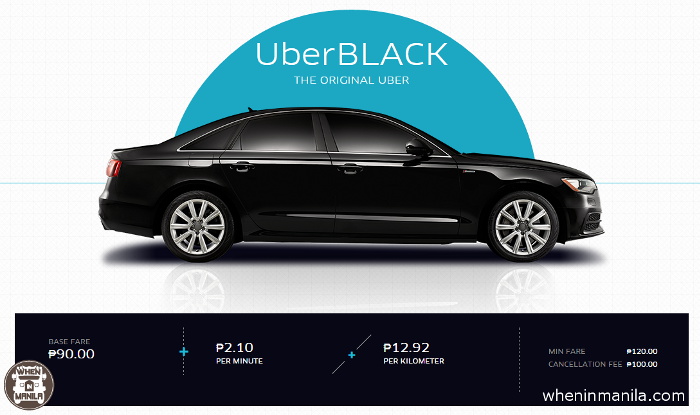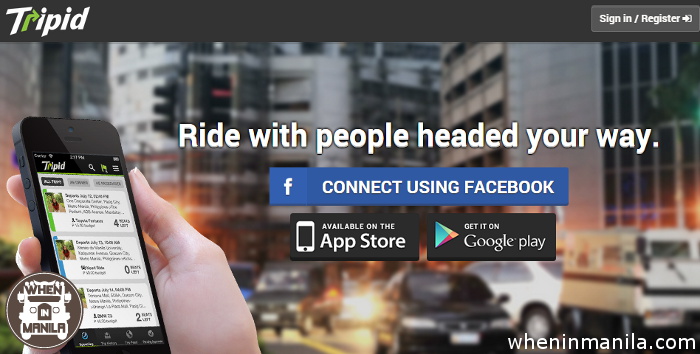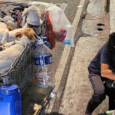Game Over For Uber, GrabCar & Co? MMDA And LTFRB Go To War Over Car Service Apps
Two agencies are going head to head in a war of words and actions over popular car service apps such as Uber and Tripid. While MMDA Chairman Francis Tolentino is on record as saying that the LTFRB should stop apprehending vehicles operating for services like Uber, GrabCar and Tripid, the LTFRB is busy conducting sting operations and fining drivers of what they consider to be colorum vehicles. The loser in all this, as so often, seems to be the consumer.
On Wednesday this week someone booked a trip via popular transportation app Uber and climbed aboard a black Toyota Fortuner to go from Metrowalk in Pasig City to Quezon Memorial Circle. The journey itself was as safe and uneventful as thousands of trips booked through the popular smartphone app before it, but the end differed greatly from the usual Uber experience. Once stopped at the destination, the vehicle was surrounded by LTFRB enforcers and LTO staff, the driver’s license was confiscated and the car was impounded for franchise violation, leaving the driver facing a possible P200,000 fine.
This was only the first of what are said to have been up to 200 stops of Uber vehicles by LTFRB staff on the day, an operation that wasn’t very popular with the head of another agency. MMDA Chairman Francis Tolentino said the Land Transportation Franchising and Regulatory Board should stop apprehending vehicles operating for Uber and car pooling apps like Tripid, as these help to ease traffic congestion:
“The muscle of the law and the procedural and technical arms of government agencies alone cannot resolve the lack of alternate means of transportation problem, they can only increase apprehension records. Uber or hybrid carpooling is a well-meaning technology-driven effort intended for public safety and convenience, that’s why people are patronizing it. We cannot curtail their mobility rights. This is similar to private bridal cars and private ambulances for rent which is a private transaction between the rider and the owner of the vehicle,”
He added: “Perhaps there is another way of looking at this system, as no irregularity under the Public Service Law, as amended, is being committed here, and has proven to be beneficial to commuters”.
Maybe unsurprisingly, the sting and general clampdown against services such as Uber and GrabCar was based on a complaint filed by the Philippine National Taxi Operators Association, with the LTFRB saying that the focus of the operation was on the private vehicles and not Uber itself. A spokesperson is on record as saying: “Uber doesn’t need to secure a franchise because it’s not a transport company, they don’t carry passengers. But through its application, private unlicensed vehicles are able to engage in public land transportation without securing a franchise from LTFRB,”
Public opinion in this matter appears to be firmly on the side of the app operators, with many people understanding the concerns of the taxi trade, but pointing to the unsatisfactory state of public transport, and to the lack of enough reliable, safe and modern methods to get from A to B that these apps are actively addressing. Some voices on social media were going as far as saying that the LTFRB may have ulterior motives for their actions. In any case, it seems the loser in all this is again the consumer, who might be left with fewer transport choices.
Uber issued a statement expressing its disappointment over the actions of the LTFRB and adding that the company is committed to improving transportation options for its Filipino customers:
“Uber is committed to put the interest of consumers and their communities as priority by bringing something fresh and new to a sector that is characterized by stagnation. Safe, reliable, and convenient transportation options – something that Filipinos have been demanding for a long time now,” said Mike Brown, regional general manager of Southeast Asia and Australia at Uber.
“Around the world, Uber is working with governments to achieve common goals, focused on safe, reliable and efficient transportation options, that are regulated. It is our mission to work with like-minded individuals to encourage new policies that welcome innovation and improve transportation options while putting consumer safety and driver opportunity first for all Filipinos,” he added.
I’m a huge fan of Uber and use the app a lot. At the time of writing, it still works fine and will hopefully continue to do so for a long time to come. Metro Manila is definitely big enough for both, taxis and car apps to co-exist, as anyone who has tried to hail a cab on a rainy afternoon will be able to attest.
What do you think of the LTFRB’s actions? Should apps like Uber, GrabCar and Tripid be licensed, or is the MMDA right in calling for a stop of sting operations on these new ways to get around?
Game Over For Uber, GrabCar & Co? MMDA And LTFRB Go To War Over Car Service Apps






